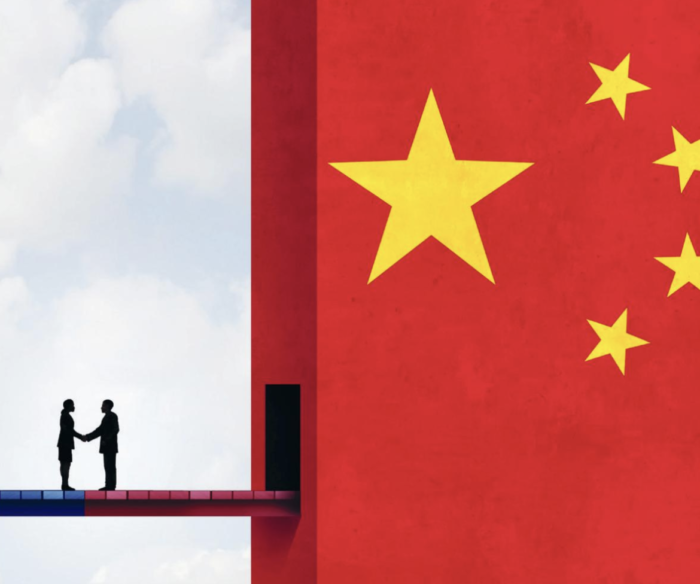How can Western business leaders master the art of negotiating with Chinese companies?
In a globalized economy, the ability to negotiate across cultural boundaries has become an essential skill for Western businesses. The Chinese market, in particular, presents a unique set of challenges and opportunities. Western negotiators can benefit from exploring the key differences – and from following a handful of guiding principles for inter-cultural communication.
A distinctive landscape
The starting point is understanding the Chinese approach. It goes beyond what Western executives would see as traditional business dealings, encompassing a rich tapestry of cultural and historical nuances. The case of Ericsson’s foray into the Chinese telecommunications sector in the early 2000s is illustrative. The Swedish multinational’s approach underscored the importance of pre-negotiation phases, involving initial contacts with government authorities to ascertain technological capabilities and reliability.
It is also key to understand that the finish line may move: even when you think the hardest part is done and the deal is signed, there could be a new round of renegotiations. One experienced Swedish negotiator recalls: “Unlike negotiators in other countries who consider agreement final, Chinese negotiators often revisit and renegotiate previously settled issues, showing a tendency not to adhere strictly to initial agreements.”
Research also points to substantial differences in negotiation style. Tong Fang at the Stockholm Business School writes that Chinese negotiators typically exhibit a blend of roles. The ‘Maoist Bureaucrat’ intertwines politics with business, adhering to national agendas. The ‘Confucian Gentleman’ emphasizes trust, mutual benefit and relationship over profit; while the ‘Sun Tzu-like Strategist’ approaches negotiations as a competitive battlefield, employing psychological tactics to gain the upper hand. This mix makes the negotiation process complex and multifaceted.
Key differences and guiding principles
I identify six essential strategies and principles for effective negotiations with Chinese counterparts.
1 Strategic team formation
The composition of the Western negotiating team is a critical factor. It should comprise individuals with diverse skills, including technical, financial and cultural expertise. The team’s seniority and experience convey respect and commitment.
2 Importance of political endorsement
Demonstrating governmental support is pivotal in large-scale negotiations, reflecting the intertwined nature of business and government in China. It’s essential to understand the role of government in your industry and you may need to seek government support or approval for your business dealings.
3 Valuing relationships over contracts
Chinese culture places a higher value on relationships and trust than on legal documentation. Building and maintaining guanxi (relationships) is crucial. As a senior Chinese executive says: “To do things in China, you must do people first.”
4 Leveraging local expertise
Utilizing the insights of local Chinese staff can provide a significant advantage in understanding and navigating the cultural and bureaucratic landscape. This includes the legal and regulatory environment: while relationships are important, understanding the legal framework and ensuring compliance with Chinese law is essential. The success of GE in China can be attributed to its willingness to adapt to local conditions, its emphasis on forming joint ventures and partnerships, and its focus on technology transfer and local talent development.
5 Cultivating patience
Negotiations in China may take longer than in the West. The Chinese negotiation process is characterized by a slower pace, with an emphasis on building relationships before getting down to business. Patience and persistence are key virtues; rushing towards closure is often counterproductive.
6 Culturally-informed pricing strategies
Adjusting pricing strategies to accommodate the cultural aspect of bargaining is essential in Chinese negotiations.
Effective inter-cultural communication strategies
We cannot negotiate successfully without effective inter-cultural communication strategies. When it comes to negotiations with Chinese businesses, there are several essential strategies to consider.
The first is adaptability to cultural differences. This is of fundamental importance. Yet negotiators must also understand that individual counterparts may not align perfectly with cultural stereotypes. Regional differences, as well as the unique corporate culture of the business you are interacting with, should also be taken into consideration.
Second is active listening and clarification. These are key to ensuring mutual understanding and alignment of objectives. Pay close attention to non-verbal cues and the nuances of the Chinese way of communicating: these may be more indirect than Westerners are accustomed to.
Third, build rapport and trust. It is important to develop rapport with Chinese counterparts, understand their business practices and cultural values, and ensure that they maintain ‘face’ during negotiations. Indeed, the concept of face – dignity and respect – is critical in Chinese culture, so avoid direct confrontation or criticism. Disagreements should be handled subtly and diplomatically to avoid causing embarrassment or loss of face to your Chinese counterparts.
Next, be flexible in your approach. The Chinese negotiation style involves multiple rounds of discussions and repeated presentations, necessitating flexibility and adaptability from Western negotiators. When Walmart was entering the Chinese market, it had to adapt its business model significantly to align with both Chinese consumer preferences and government regulations. This adaptation involved localizing product offerings, understanding regional differences within China, and building relationships with local suppliers and government entities.
Finally, utilize translators effectively. Translators play a crucial role in cross-cultural negotiations, where accurate and contextually-informed translation is at a premium. Draw on the insights that they can provide.
Mutual benefit
Successfully negotiating with Chinese businesses requires an intricate balance of business acumen, cultural understanding, and strategic adaptability. Western businesses must navigate this complex terrain with patience, empathy and a readiness to embrace cultural differences.
Fundamentally, such negotiations are more than just business transactions; they are cross-cultural engagements that, when navigated effectively, can lead to lasting partnerships and mutual growth. By mastering these principles and strategies, Western firms can unlock the potential of the Chinese market, fostering successful and sustainable business relationships.
As the global business landscape continues to evolve at pace, the ability to negotiate across cultures will remain a vital skill for business leaders worldwide.
Dr Catherine Hua Xiang is head of East Asian Languages at the London School of Economics and author of Bridging the Gap: An Introduction to Intercultural Communication with China (LID Publishing).

